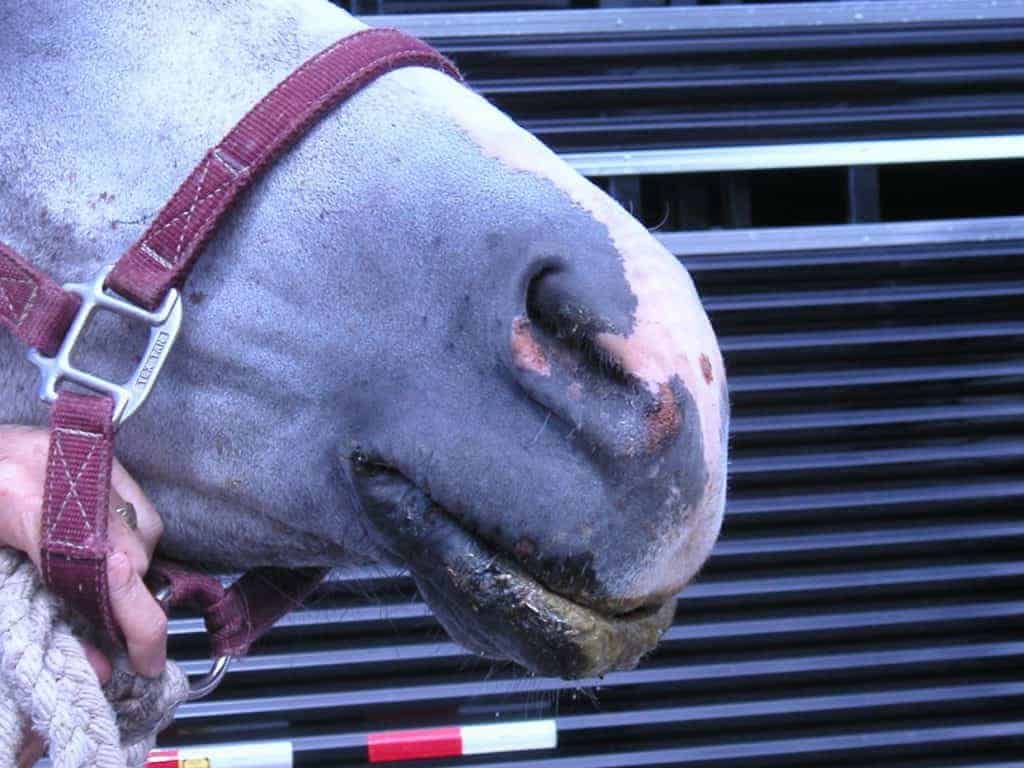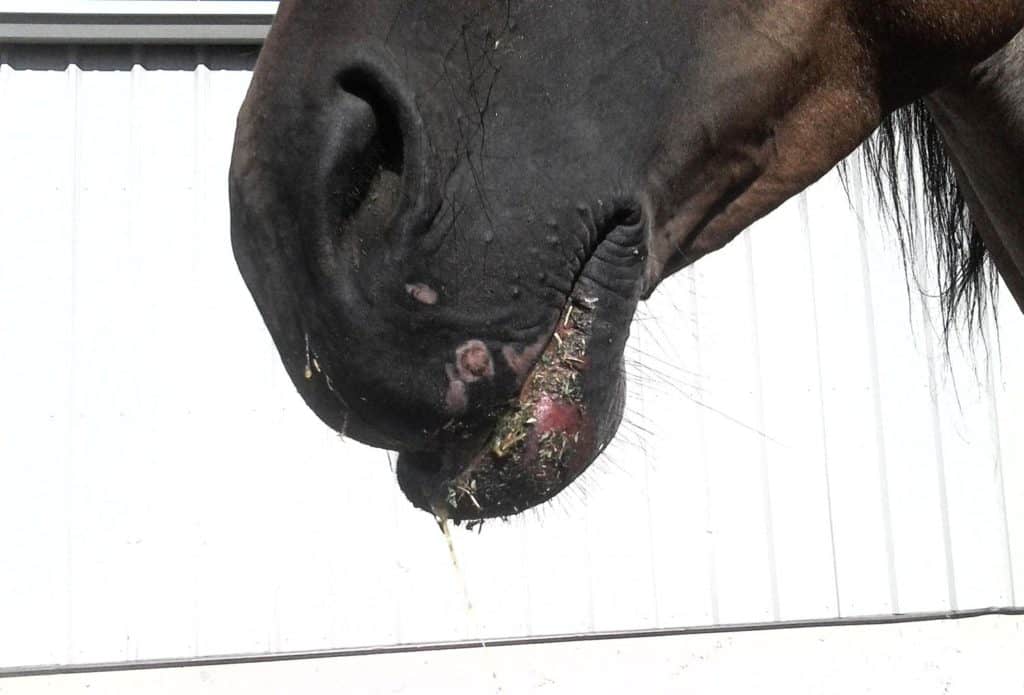
Vesicular Stomatitis Confirmed in Additional Colorado Counties
On July 12 the Colorado Department of Agriculture reported additional confirmed cases of vesicular stomatitis virus in La Plata, Larimer, and Weld counties.

On July 12 the Colorado Department of Agriculture reported additional confirmed cases of vesicular stomatitis virus in La Plata, Larimer, and Weld counties.

Effective immediately, horses coming from states with active vesicular stomatitis quarantines must be accompanied by a certificate of veterinary inspection and an import permit.

Horses in Colorado, New Mexico, and Texas have tested positive for VS, and multiple facilities in each state have been quarantined.

Horses residing on a premises in Kinney County, Texas, tested positive for vesicular stomatitis on June 21, the Texas Animal Health Commission reported June 24.

Dr. Paul Morley of CSU’s School of Veterinary Medicine describes the difference between VS lesions and other sores.

Vesicular stomatitis is known for causing severe mouth blisters, but did you know it can cause foot lesions as well? The USDA’s Dr. Angela Pelzel-McClusky explains.

Vesicular Stomatitis causes mouth blisters, coronet band lesions lameness, and more. Learn about this insect-spread disease’s clinical signs from Dr. Angela Pelzel-McClusky, who serves as the USDA’s national equine epidemiologist.

Dr. Paul Morley of Colorado State University explains how insects can transmit vesicular stomatitis between horses and cattle and horses, as well as other ways the disease can spread.
Diagnosed diseases include vesicular stomatitis, EHV, strangles, influenza, piroplasmosis, rabies, and more.
Confirmed diseases include vesicular stomatitis, EHV, influenza, Hendra virus, equine infectious anemia, and more.

If you own horses in Colorado, you’re probably familiar with VS. Elsewhere, you might get to know it soon enough. Get your questions answered now from our experts.

Learn about this pathogen that’s spreading across the country and how to keep your horse from contracting it.

While the disease has affected Colorado horses, the remaining quarantines only impact cattle herds, officials said.
Confirmed diseases include vesicular stomatitis, herpesvirus, influenza, Getah virus, and strangles, among others.

Seventeen premises remain quarantined while restrictions have been lifted on 414 facilities.

Forty-five premises remain quarantined while restrictions have been lifted on 376 facilities.
Stay on top of the most recent Horse Health news with
Notifications